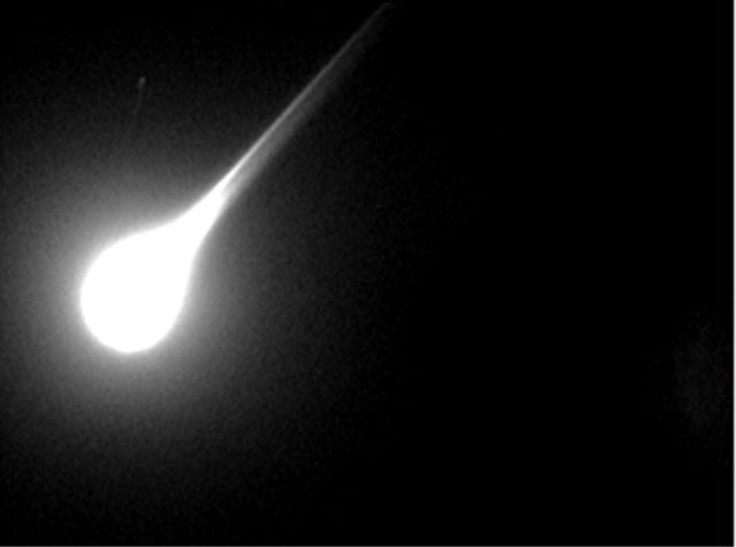St. Louis, Missouri Meteor: 100kg Fireball From Asteroid Belt Near Mars, NASA Confirms

An official from NASA confirmed that the meteor that lit up a major U.S. city earlier this week came from the asteroid belt. According to the official, the meteor that turned into a bright fireball in the sky weighed about a hundred kilograms.
On Monday, several eyewitnesses saw a bright fireball streaking across the night sky in St. Louis, Missouri. The same object was also spotted by several security cameras as it passed over suburban homes before producing a loud sonic boom.
After follow-up investigations on the object, it was confirmed that it was a meteor. Bill Cooke of NASA’s Meteoroid Environments Office in Alabama explained that the meteor broke off the asteroid belt, which is located between Mars and Jupiter.
Cooke noted that the cosmic object traveled across space before hitting Earth. Data from NASA’s satellites also revealed that the meteor was about the size of a basketball. It entered Earth’s atmosphere at a speed of around 33,500 miles per hour.
Meteor flying overhead from east to west in O'Fallon, MO this evening just west of St. Louis. #stlwx #mowx pic.twitter.com/0IX2fppoEd
— Tom Stolze (@ofallonweather) November 12, 2019
As the meteor went through Earth’s atmosphere, it burned into a huge fireball, which according to NASA was brighter than Venus in the sky. The space rock then broke into several pieces a couple of miles above the ground. Cooke noted that the pieces that were able to reach the ground can be safely picked up even though they came from a fireball.
“It’s not like the movies,” Cooke said according to the St. Louis Post-Dispatch. “Meteorites are not flaming rocks of doom. By the time a meteorite hits the ground, it’s completely cold.”
“This isn’t Superman, and meteorites are not kryptonite,” he added.
According to Erika Gibb, the chairwoman of the University of Missouri-St Louis’ Department of Physics and Astronomy, Earth gets regularly hit by meteors on a daily basis. But, unlike the one that appeared over St. Louis recently, most of the meteors that enter Earth’s atmosphere are small enough to turn into a bright fireball.
“If you go out on any given clear night you can see several meteors in an hour,” Gibb explained. “There are all kinds of debris in our solar system and we’re getting hit by small stuff on a regular basis. Most just aren’t very big and bright like the one last night.”
© Copyright IBTimes 2024. All rights reserved.





















